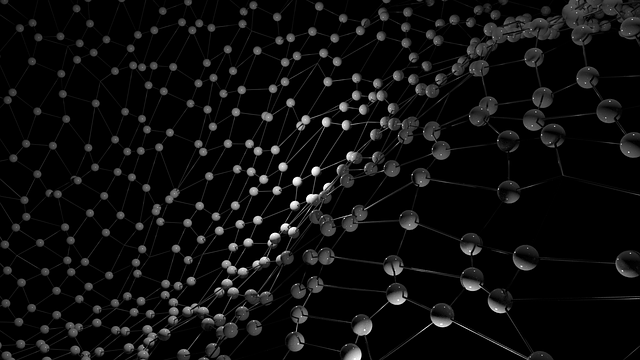
Researchers from the group of Ikerbasque professor Aurelio Mateo-Alonso at POLYMAT and at the University of the Basque Country, in collaboration with researchers from KU Leuven (Belgium) and the University of Aveiro (Portugal), have published an article in the prestigious Nature journal that provides literally snapshots of 2D polymer formation and growth at submolecular resolution.
We can no longer imagine life without polymers. Products made from polymers are all around us, from clothing made from synthetic fibers to plastic lenses in glasses. Polymers are formed when small molecules called monomers join together to form long chains. If a monomer reacts with more than two monomers, sheets with a periodic internal structure can be formed, called two-dimensional (2D) polymers. Some of these 2D polymers are porous and could be used as membranes. Other types show promise for advanced electronics. Exactly how these 2D polymers are formed remains a mystery. It is important to know their formation mechanism to enhance the size and structural perfection of these interesting materials.
A team of researchers from KU Leuven University (Belgium), POLYMAT and the University of the Basque Country (Spain), and the University of Aveiro (Portugal) have joined forces to provide insights into the mechanistic and kinetic aspects of these reactions leading to the 2D polymer formation.
They used scanning tunneling microscopy, an advanced type of non-optical microscopy, to follow in real time, as bonds are formed and broken, molecule by molecule, the birth and growth of these 2D polymers on a solid support immersed in a reactive solution. Supporting theory, they showed that several growth mechanisms coexist, and controlling them leads to the formation of high-quality, large-size polymer sheets.
Prof. Mateo Alonso obtained a degree in Organic Chemistry (1999) at the Autonomous University of Madrid, where he completed a Master's degree (2000). Later, he received his Ph.D. in Chemistry (2004) from Queen Mary College of the University of London (United Kingdom). During 2004 and 2009, he worked at the University of Trieste (Italy) as a Postdoctoral Researcher. In 2009 he began his independent research career as Group Leader at the Institute for Advanced Studies in Freiburg (Germany). Since 2012, as an Ikerbasque researcher, he has led the Molecular and Supramolecular Materials group at POLYMAT and at the University of the Basque Country (UPV/EHU).
Prof. Mateo Alonso's research group focuses primarily on the synthesis and in the supramolecular chemistry of nanographenes (nanometric-sized graphene derivatives) and on exploring the potential of these systems in electronic and energy applications.
His research work has been recognized nationally and internationally with several awards, including: the University of Trieste Young Researchers Award (Italy 2007); the Eugen-Graetz Prize of the University of Freiburg (Germany 2009); the Young Researchers Award of the Royal Spanish Society of Chemistry (Spain 2011); the Young Investigator Award from the Nanocarbons division of the American Electrochemical Society (USA 2012) and the RSEQ Research Excellence Award (2021).
For more information about the article: DOI: 10.1038/s41586-022-04409-6
.png)
